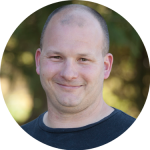“The truth is out there.” That famous line came to define a show that captivated me at secondary school. In The X-Files, FBI agents Mulder and Scully spent 202 episodes chasing conspiracy theories and paranormal activity all over America. Regardless of the danger, hardship, futility, cost, time, or any other obstacle, they continued—because “the truth is out there.”
The show resonated with me, as I have always been a truth seeker. I want to know why things are, how they came to be, and how we know. My past is littered with things I’ve broken by investigating how they work and with useless trivia gleaned in my searches. But it also contains a helpful understanding of how investigation itself functions.
Curiosity led me to undertake research in the field of molecular neuroscience, where I investigated things far too small to be seen. I relied on tools that help visualise the objects under investigation. Every tool must be carefully chosen in order to show something real and not to produce false positives and negatives. In fact, more than half of every experiment involved control tests, not direct investigation, that asked, “how much do we trust the result and how can we show others that the result is trustworthy?”
Any research done well requires a genuine desire to know truth, testing that what we know is trustworthy. No matter the subject, we need to understand how our tools work and what kind of results they can safely deliver.
This is true of any investigation of truth, not just within academic research. As Ludwig Wittgenstein famously said, “Tell me how you are searching, and I will tell you what you are searching for.” He understood that the results of an investigation are determined more by the terms of investigation than the desire of the researcher.
In other words, if my wife asks me how she looks, she may only learn how much I love her.
How we know about God and how we investigate truth about God is now my field as a TSCF staff worker and pastor of a church. Every time I speak, I make truth claims about who God is and how we know.
Last year a student in the Otago Law Christian Fellowship asked why there were many competing truth claims made by Christians about same-sex attraction. Was it possible that all truth was simply relative to the position of the speaker? In order to answer the question of whether truth is relative, we had to investigate how people holding different positions came to their conclusions. Only then could we begin to investigate how tenable we found those positions.
It took a whole semester, but Law CF chugged through Charles Wesley’s four sources of Christian knowledge—Bible, tradition, reason and experience—and investigated the ways each contributed to the positions held by prominent voices on the topic.
Wesley advocated the supremacy of Scripture as the primary means of knowing God and knowing about God. Studying Scripture is a tool for discovering truth, and as such it can be used both well and poorly. TSCF aims to equip people with tools to understand Scripture and to be more confident in how they came to understand it. We want to learn to use the tools well in order to continue growing in knowledge and truth. (If you want a succinct collection of tools for Bible study, I recommend Nigel Beynon and Andrew Sachs’ book Dig Deeper.)
We also have other faculties that allow us to determine truth. Our ability to reason, to work collaboratively through the ages, and our own experience of the world and God’s work within it cause us to learn and advocate for truth. As with Bible study, we need to be aware of how these forms of investigation function, both their strengths and weaknesses.
Too often tradition becomes tribalism. We seek to express truth in a way that delineates who is “us” and who is “them.” Too often reason becomes acquiescence to current thought fashions, regardless of how logical or illogical they are. Too often experience becomes a way of rejecting millennia of careful Christian investigation.
Fox TV was right; “the truth is out there.” How we investigate it is as important as what we come to believe. Academic investigation has a lot to teach us about the tools for discovering truth, and those tools ought to leave us more confident in what we know. But getting to that point—understanding how we think we know—does take some work.
Mike Summerfield is an Otago Staff Worker and the Pastor of Roslyn Baptist Church.






